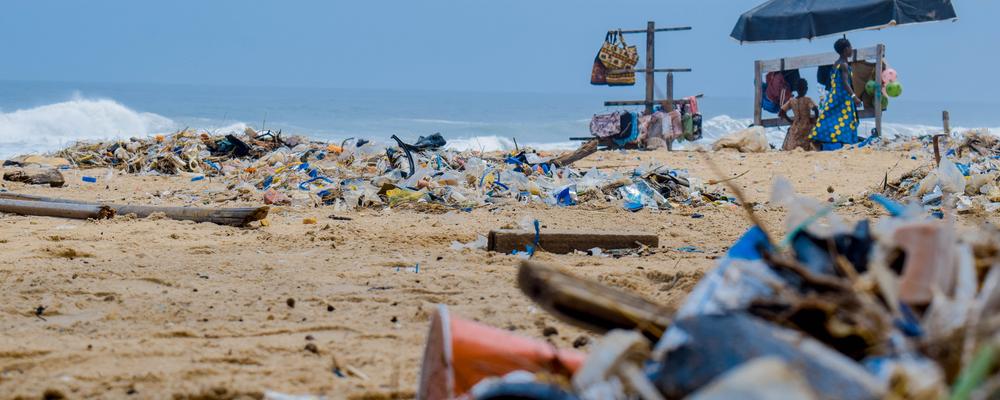In a newly granted project, a research team is putting the spotlight on toxic chemicals in plastics and how we can recycle plastic safely in the future.
Plastic pollution is widespread in the environment due to the massive scale of plastic production and consumption and lack of waste management. Recycling can be part of a solution to this problem, but plastics consist of lots of different polymers and chemicals, which makes it difficult to do this in a safe and sustainable way. Today, only a small percentage of plastic materials are recycled, most of it are burned or piled up.
Another important factor is that plastic waste is often exported to developing countries in the global south. The waste then risks poisoning not only recycled plastics, but also the environment. This can cause health and environmental problems in those countries.
“The long-term vision of the project is to drastically reduce the production, trade and use of plastics that cannot be recycled due to the content of hazardous chemicals. We also want to protect a non-toxic circular economy via an expansion of producer responsibility”, says project manager Bethanie Carney Almroth, senior lecturer and researcher in ecotoxicology and zoophysiology at the University of Gothenburg.
"A wide range of toxic chemicals are added to plastics without any transparency for consumers and recyclers. The impact on human health and the environment caused by plastics containing toxic chemicals is especially high in low- and middle-income countries that rarely produces these plastics themselves. These plastics should not be recycled but instead be considered a non-circular material." says Sara Brosché who is a Science Advisor at IPEN, a global network of environmental organizations in more than 120 countries.
In the project, the researchers will investigate recycled plastic pellets from small-scale recycling centres in countries in the global south. They will measure toxic chemicals in the plastic and evaluate the leaching and effects of these chemicals to aquatic organisms, such as algae, bacteria, and fish.
“We want to analyse the chemicals in the plastics and measure effects of chemicals leaching from the plastics to organisms at different levels of the ecosystem. We measure harmful effects, such as impact on survival, growth, and development. The information can then be used to make environmental risk assessments”, Bethanie continues.
Next, the project will evaluate economic and political instruments that can be used to support a more safe, efficient, and economical recycling of plastics.
“If we cannot ensure that recycled plastics are free of toxins, investments in the circular economy are jeopardized”, says Daniel Slunge, researcher in environmental economic policy instruments for chemical management at FRAM and within the international network Environment for Development.
Plastic recycling is a global issue. The researchers have already collected samples from 12 different countries, of which Kenya is one. Kenya is struggling with the management of growing amounts of plastic waste and has recently adopted and developed several policies to reduce plastic waste and encourage recycling. This includes a ban on single-use bags, a recycling levy on plastic bottles and draft regulation on extended producer responsibility.
However, the infrastructure and resources to manage the transition to more circular plastic flows are poor compared to Sweden, which is one of the leading countries when it comes to increased producer responsibility. Nevertheless, there are major challenges in Sweden and in Europe in achieving safer recycling of plastics in line with the goal of 50% recycled plastic by 2030 in Europe. Something the project wants to address.
“We will identify policy options to increase safe recycling of plastics in Kenya and in the European Union with a focus on Sweden”, says Daniel.
